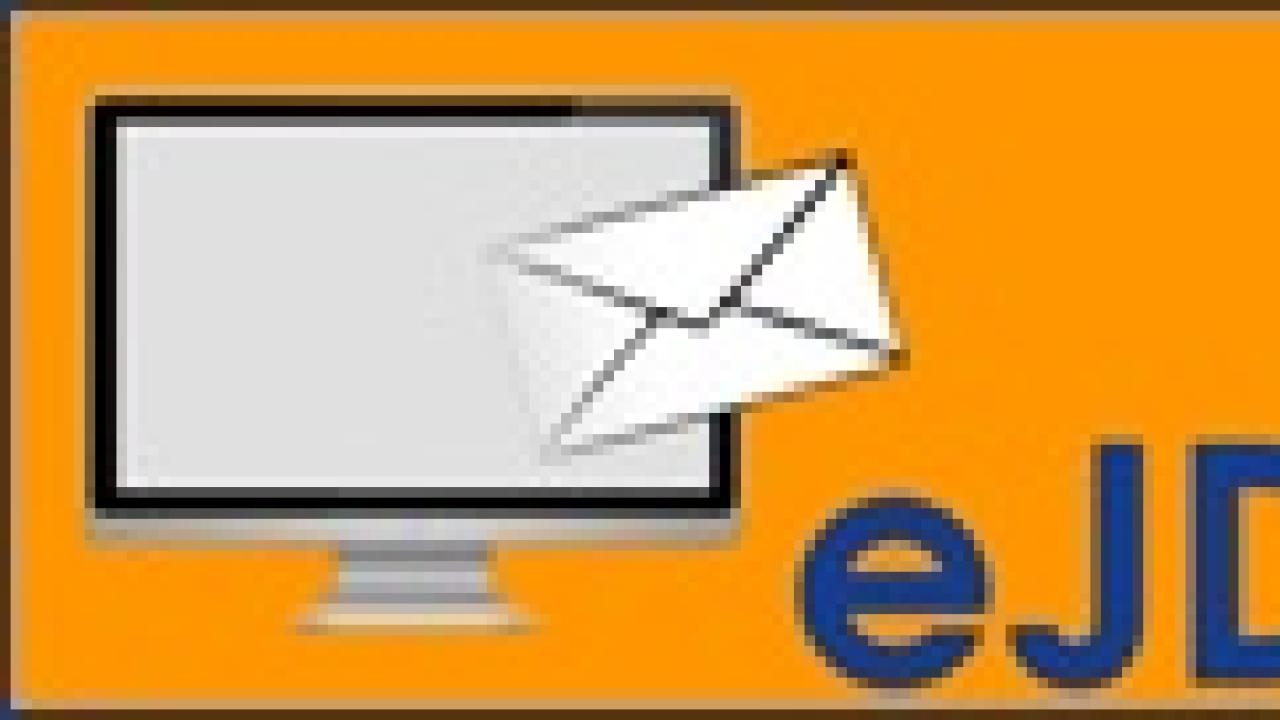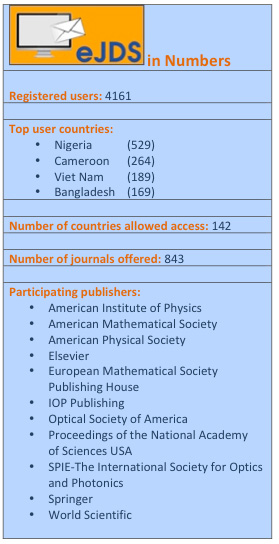
Physicists and mathematicians from the
developing world face daunting challenges in their pursuit of
knowledge, from a shortage of specialists in their fields to
inadequate research facilities.
Lack of subscriptions to international science journals is still
another common problem, due to cost and technical issues. But
thanks to an innovative ICTP programme, access to the latest
scientific articles is just a mouse-click away.
For the past decade, the Centre's electronic Journals Delivery
Service (eJDS) has advanced scientific knowledge by providing free,
easy access to scientific articles via e-mail to scientists in
developing countries who lack sufficient bandwidth to download
material from the Internet in a timely manner and/or cannot afford
the connection.
Thanks to ICTP's carefully arranged agreements with some of the
world's leading scientific publishers, scientists who live and work
in least-developed or low-income countries can receive current
scientific literature from more than 800 journals. The publishers
have established a set of criteria for those who can use the
service, and have set limits to the number of articles per journal
that can be accessed each day (three), month (12) and year
(100).
 The agreements have been a win-win
situation for everyone, says Enrique Canessa, one of the founders
of eJDS, a concept that was conceived in January 2001 by former
ICTP staff scientist Hilda Cerdeira. "Developing-world
scientists have access to a much wider range of current scientific
information and findings than ever before, and publishers are able
to reach researchers who would otherwise have neither the technical
nor the financial means to access information from their journals
in a timely fashion," he explains.
The agreements have been a win-win
situation for everyone, says Enrique Canessa, one of the founders
of eJDS, a concept that was conceived in January 2001 by former
ICTP staff scientist Hilda Cerdeira. "Developing-world
scientists have access to a much wider range of current scientific
information and findings than ever before, and publishers are able
to reach researchers who would otherwise have neither the technical
nor the financial means to access information from their journals
in a timely fashion," he explains.
Canessa, of the Centre's Science Dissemination Unit (SDU), and
Clement Onime of ICTP's Information and Communication Technology
Section developed the original, open-source software, known as
www4mail, which powered eJDS. This homegrown application allowed
users to navigate the Internet offline, and to search the Internet
via email. Over the years the two, with support from SDU, have
refined the delivery service, which now allows users to follow
hyperlinks as if they were surfing the web via a live Internet
connection.
"Today this experiment is a robust, well-known service that serves
thousands of scientists world-wide, providing a crucial
informational lifeline to the global scientific community," says
Cannessa.
The eJDS now has 4,161 registered users from 142 countries, and
that number is expected to grow as the service launches a renewed
interface with the assistance of the Trieste-based SISSA MediaLab.
ICTP's Marie Curie Library manages subscriptions to the service,
and administers the new eJDS system.
The upgraded eJDS will be presented at the workshop 'ICTP
eJournals Delivery Service (eJDS) for Scientists in Developing
Countries - 10th Anniversary' on 8 June in Trieste, where this
important milestone will be celebrated along with a view to the
future. Canessa and Cerdeira say the workshop will review why eJDS
is still necessary today and how to adapt new realities and
technologies to achieve its primary goal in an ever-faster changing
world.
For more information:
http://ejds.ictp.it/
E-mail: ejds@ictp.it
















